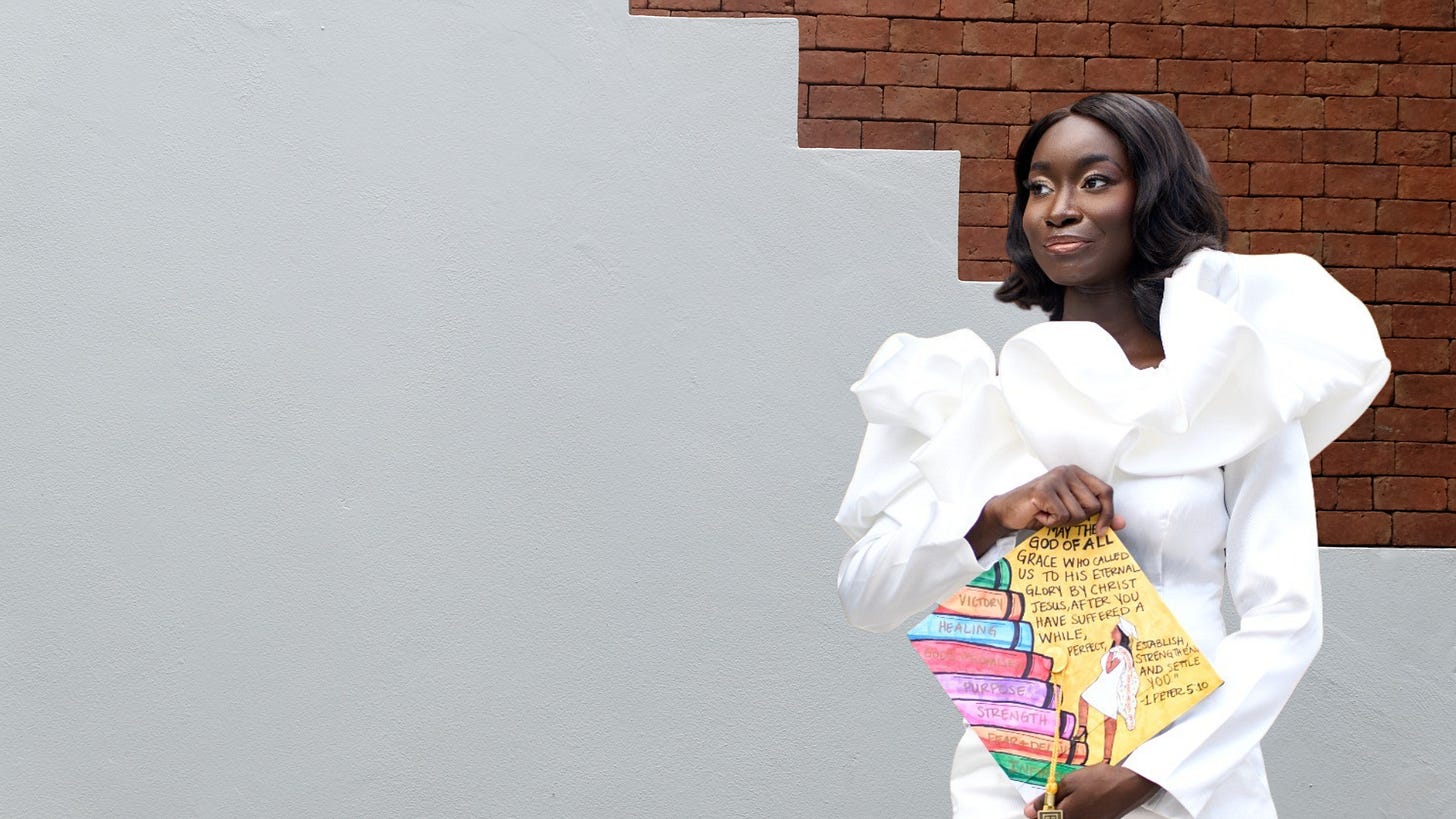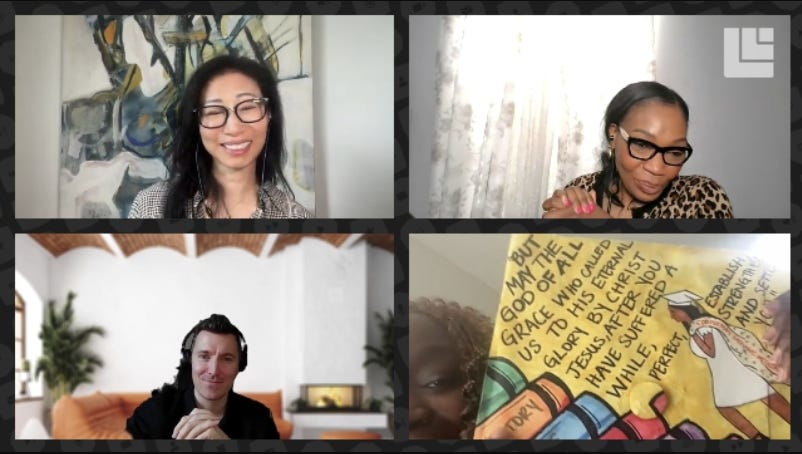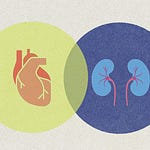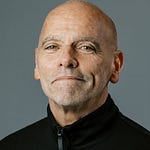“Take back your life, one day at a time.” That was one of several things that struck me during our conversation with Michelle Yeboah. At 19, she was living a full, vibrant life—until a lupus diagnosis set her on a path of chronic illness, kidney failure, dialysis, and ultimately, a transplant. What followed was a years-long journey of grief, growth, and grit.
Michelle joined us for this special Signals KOLs episode alongside her former dialysis nurse, our very own Lilian Okonkwo. With Alice moderating the discussion, they reflect on how a chance encounter in an isolation room became the beginning of a life-changing friendship—and how Michelle is now using her experience to pursue medicine and inspire others.
In this interview, we discuss:
Getting diagnosed with lupus at 19
The emotional toll of chronic illness
Why patient navigators matter
How a nurse’s empathy changed her trajectory
Choosing home dialysis and reclaiming her life
Getting the call for a kidney transplant…right?
Rebuilding her life after transplant
Becoming a medical scribe—and future nephrologist
Michelle’s journey is nothing short of inspiring, and the story she and Lilian share is a beautiful one. I have so much respect for Michelle and the way she discusses her mindset, thoughts around home dialysis, the challenges of managing her health, and the role of her family, faith, and community in her recovery. I know you’ll come away from this one like I did—feeling the power of personal connection in health care.
And I especially loved how she brought it all together in the end—sharing the story behind her graduation cap (see below), handcrafted by her sister the night before the ceremony. Each step she climbed was painted with a word: infirmity, fear, delay, strength, and purpose. After everything she’s been through, it’s a great reminder that every journey begins with a single step.
We hope you enjoy this one as much as we did.
Q&A
Can you tell us about your diagnosis and how it all started?
When I was 19, I was diagnosed with lupus. At first, I didn’t take it seriously—I got a pamphlet but didn’t think much of it. But things got worse, fast. I couldn't walk, couldn’t eat, and had to be hospitalized. That’s when I realized this wasn’t going away. But even then, no one really explained it. I didn’t have a guide or therapist or social worker to talk to—just a diagnosis and a mountain of medications.
What would have helped you in that moment?
Honestly, someone to sit with me. To hold my hand and talk me through what life would look like. Not just the physical stuff—but the mental toll too. Education and support would have changed everything.
Tell us how you and Lilian met.
Michelle: I remember it like it was yesterday. I had COVID, so they put me in the isolation room for dialysis. I was crying under my mask, wondering what was happening to my life. That’s when Nurse Lillian walked in. She introduced herself and said she’d be my nurse moving forward. She told me I could talk to her if I needed anything. I nodded, but in my head I was thinking, please leave me alone. I was overwhelmed. But she kept showing up, kept asking how I was doing mentally, how things were at home. Over time, I started opening up. She wasn’t just checking my vitals—she was checking on me.
Lilian: I remember walking into the dialysis unit and seeing Michelle—this young woman sitting in the chair. My first question to her was, “What are you doing here?” I think she caught an attitude with me, which is fair. But I meant it genuinely—what was someone her age doing in a dialysis chair? I knew I had to build trust, and I knew I wasn’t going to stop trying. My goal from the beginning was to make sure she knew her options, especially transplant. And I wanted her to know she had someone in her corner.
Had you considered transplant before that?
I had, but I was resistant. My mom pushed me to go to the transplant seminar. I went, did the bloodwork, and thought, “Okay, now I’ll just wait 10 years.” That was it. No follow-up, no updates. I didn’t expect anything soon.
What changed your mind about home dialysis?
Michelle: Lilian kept telling me: “Go home. Take back your life.” I didn’t want another catheter. But I listened. I chose peritoneal dialysis, did my training, and started dialyzing at night while going back to school during the day. That gave me my freedom back.
Lilian: I remember assessing Michelle and thinking, she could thrive at home. But I didn’t want to push—it had to be her choice. So I kept bringing it up in conversation, asking questions, learning about her support system. When she mentioned her mom was an LPN, I knew we had something to build on. I even walked her to the car one day to talk with her mom directly and make sure they both felt confident. It wasn’t just about convincing Michelle—it was about preparing her to succeed.
You were doing home dialysis and going to school—how did you manage?
It wasn’t easy. I was insecure. I stayed home a lot. I didn’t want anyone to see me with the catheter. I wore hats, avoided mirrors, even kept my condition from close friends. But slowly, I got more confident. I even went to Chicago with my sister. I started living again.
Tell us about the day you got the call.
I ignored the first call thinking it was a scam. The second one I picked up. They said, “There’s a kidney available, you might be next.” Everything happened fast. I was in Philadelphia, but the kidney was in New Jersey. Flights were canceled, so I took an Uber with my dialysis machine. The driver almost didn’t take me because he thought I meant Newark, Delaware. It was chaos. When I got to the hospital, I still didn’t know if it was happening. Finally, a nurse said, “Congratulations, you’re going to get the kidney.” I was in disbelief.
How did your family react?
Everyone cried. My dad said he thought I wouldn’t make it and was planning to create a foundation in my name. My mom told me how she used to cry in the car after dropping me off at chemo. They carried so much and never told me. The transplant wasn’t just my miracle—it was theirs too.
What has life been like since transplant?
Michelle: A blessing. I still take seven medications a day, but that’s manageable. I went back to school and graduated. My sister made me a cap with steps labeled “infirmity,” “delay,” “strength,” and “purpose.” I wore my hospital gown on it. I became a medical scribe. I’m applying to med school to become a nephrologist. I want to be the person I didn’t have—the person who holds your hand and helps you see a future.
Lilian: I remember the day Michelle called me after her graduation. I wasn’t expecting it—she just FaceTimed me out of the blue. I was sitting at my desk and wasn’t camera-ready at all, but she insisted I turn on the video. And then she showed me her graduation cap. She said, “Thank you so much. I wouldn’t have been able to do this without you.” And then she told me something that really stuck: “I want other patients to know what I now know.” That was powerful. She wanted to become a patient advocate—to be the person she didn’t have when she was first sitting in that dialysis chair. She wanted to share her story so other young patients wouldn’t feel as lost or alone. That moment meant everything to me. It reminded me why we do this work.
What advice would you give other young people just starting dialysis?
Take it one day at a time. Find someone who can bridge the gap between healthcare and real life. Don’t let the illness consume you. Take that photography class. Go to church. Live. You can still have joy and purpose even in the middle of pain.
Thanks to Michelle for joining us and sharing her story. For more on the importance of patient navigation in kidney care, check out our recent Q&A with Seth Southwick and Chenlee Condie from Intermountain Health. For more on genetics, diagnostics and patient advocacy, listen to our recent conversation with Bryce Powerman from Natera. For more on transplant centers, take a look at the program specific reports from SRTR. As always, we’d love to hear from you, our readers and listeners. Thanks for being here.
![Signals From [Space]](https://substackcdn.com/image/fetch/$s_!IXc-!,w_40,h_40,c_fill,f_auto,q_auto:good,fl_progressive:steep/https%3A%2F%2Fsubstack-post-media.s3.amazonaws.com%2Fpublic%2Fimages%2F9f7142a0-6602-495d-ab65-0e4c98cc67d4_450x450.png)
![Signals From [Space]](https://substackcdn.com/image/fetch/$s_!lBsj!,e_trim:10:white/e_trim:10:transparent/h_48,c_limit,f_auto,q_auto:good,fl_progressive:steep/https%3A%2F%2Fsubstack-post-media.s3.amazonaws.com%2Fpublic%2Fimages%2F0e0f61bc-e3f5-4f03-9c6e-5ca5da1fa095_1848x352.png)
![Signals From [Space]](https://substackcdn.com/image/fetch/$s_!NnOt!,w_144,h_144,c_fill,f_auto,q_auto:good,fl_progressive:steep,g_auto/https%3A%2F%2Fsubstack-post-media.s3.amazonaws.com%2Fpublic%2Fimages%2F688fc47b-7202-4a2e-b4f4-fea2b047ab1b_1500x1500.png)















